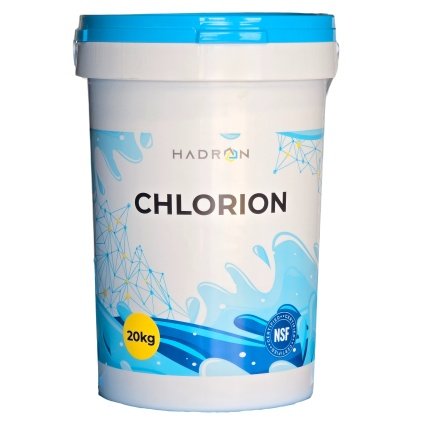

Standard Shipment
3 - 5 working days
IMPORTS
6 - 8 Weeks


R1,300.0025Kg
If you’re concerned about the safety of your drinking water, using granular chlorine is a reliable option. Certified for potable water use, it ensures the water is safe for consumption.
Chlorine is effective in eliminating harmful pathogens and maintaining water quality. Easy to use, it dissolves quickly, providing immediate results.
| Weight | 25 kg |
|---|---|
| Dimensions | 32 × 32 × 40 cm |
Chlorine tablets play a crucial role in water disinfection, ensuring the safety of drinking water for consumers. They primarily consist of sodium dichloroisocyanurate (NaDCC) or calcium hypochlorite. These compounds release hypochlorous acid, which is a powerful agent that effectively kills pathogens such as bacteria, viruses, and protozoa.
Originally developed in the mid-20th century, chlorine tablets emerged as a safer and more convenient alternative to liquid chlorine. Moreover, they offer several key benefits:
Unlike liquid or gaseous chlorine, chlorine tablets provide consistent protection while being safer to store and use. In addition, their standardized dosage makes them an ideal solution for both individual and community use, especially in areas with limited water treatment infrastructure.
Chlorine tablets offer numerous advantages over liquid chlorine and other disinfection methods. First and foremost, they are easy to use:
Furthermore, these benefits make chlorine tablets a reliable and accessible solution for water disinfection, whether for daily use or in emergency situations.
To safely and effectively use chlorine tablets for water purification, follow these guidelines:
By following these steps, you can maximize the benefits of chlorine tablets while minimizing any potential health risks.
In addition to their use in individual households, chlorine tablets have proven effective in various real-world applications:
Municipal Water Supplies: In one case, a city introduced chlorine tablets into their water treatment process. As a result, microbial levels, including E. coli, significantly dropped below the safety thresholds, improving public health outcomes.
Disaster Relief: Following Hurricane Harvey, humanitarian organizations distributed chlorine tablets to purify water for those in temporary shelters. This solution drastically reduced instances of waterborne illnesses, providing immediate relief during the crisis.
Household Use: Many families use chlorine tablets at home, particularly in areas with unreliable water quality. By following proper instructions, they can safely and effectively treat their drinking water, reducing the risk of illness.
In conclusion, these case studies demonstrate how chlorine tablets serve as a versatile, effective solution for water disinfection across different environments. Whether in daily use or emergency situations, chlorine tablets provide reliable and accessible protection against waterborne diseases.


3 - 5 working days
6 - 8 Weeks
No account yet?
Create an AccountWe use cookies to provide you with the best possible web experience. Clearing cookies may limit your banking functionality. Some cookies are strictly necessary for our website to function properly and cannot be switched off. To maintain these settings view "Cookie Preferences" in the menu